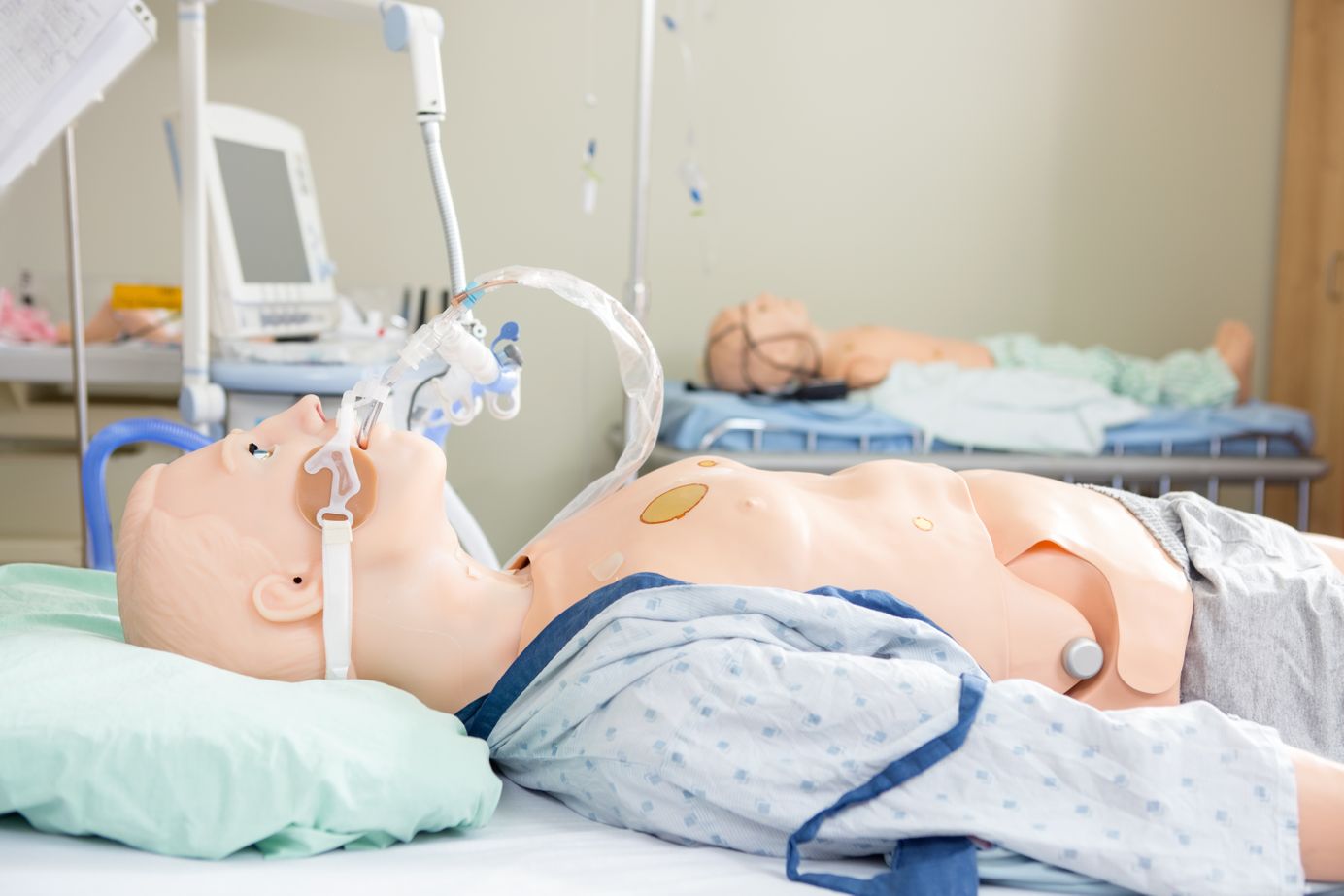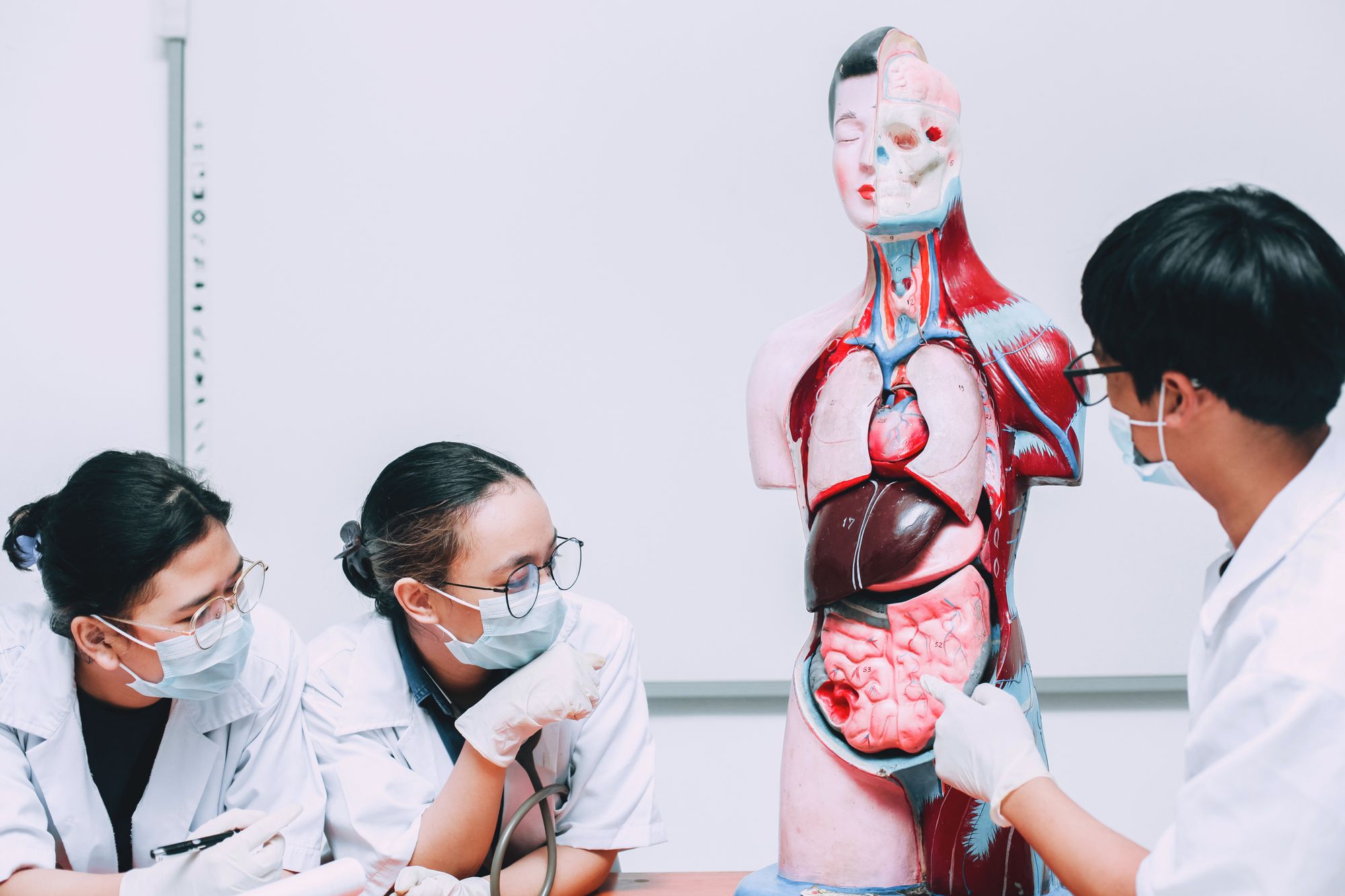
How To Get Into Medical School
Having interviewed and tutored aspiring medical students for several years, I wanted to share my insights on what makes a good medical school application, and how to make it stand out. I also include a planning exercise I do with a lot of my students!
Deciding to go to medical school is a huge decision and commitment, and the path towards getting into medical school can be even bigger. As someone who went through the process myself, I know how competitive and stressful applying for and getting into medical school can be.
For the last few years, I’ve tutored aspiring students in their medical school applications and worked on the interview panels of medical school admissions teams. I thought I’d make an article to share some of my knowledge about the application process, from starting your application to reaching the interview stage. I also want to share some tips on how to make your application stand out. Most of this article will be relevant to medical school applications in the world, but I do also mention some UK-specific information too (so check how your country differs if you’re not applying to schools in the UK!). I’ve also included a planning exercise that a lot of my students have found helpful in their processes. I hope you will too!
Let’s get started!
1. Planning

1.1 The big picture
Applying to medical school is often described as the ‘hardest part’ of your medical journey. Nowadays, competition ratios average at around 5-10 applicants per medical school spot, and this number is even higher for international applications. Lots of people apply to medical school, but getting in can be difficult! For me, applying has probably been one of the biggest challenges in my medical career so far because of how competitive admissions was and how much preparation my applications required.
When applying to medical school, keep the big picture in mind. The ultimate goal of getting into medical school is to become a doctor. Therefore, the question of:
What makes a good medical school application?
... can be translated into:
What makes a good doctor?
Start by thinking about these 3 questions:
a) Why do you want to be a doctor?
b) What attributes make a good doctor?
c) How are you demonstrating that you have the qualities to be a good doctor?
1.2 Ideal Qualities of Medical School Applicants
- Integrity, compassion, honesty - this can be difficult to demonstrate, but take care to make sure that there isn’t anything in your application that demonstrates otherwise.
- Academic excellence and intelligence - medicine is a hard profession physically, mentally, intellectually, so medical schools are looking for signs that you'll be able to handle the career such as through taking challenging classes or through extracurricular activities
- Qualities mentioned in GMC Good Medical Practice - this includes traits such as intelligence, leadership, patience, good at high pressure situations, problem solving, teamwork, good communication, proactivity
- Leadership, teamwork, communication skills, proactivity, problem solving
- Scientifically inclined - medicine is a scientific course, so being competent in science is important
Finally, medical schools want to see consistency in personality. This means demonstrating the same qualities throughout all your activities. If you say you are a compassionate person, this needs to be reflected in your choices and activities, from extracurriculars to volunteering.
Ultimately, the picture you paint of yourself in your application needs to be a true self-reflection. It’s immediately obvious to the panel if you’ve only just thrown together a few extracurriculars in your penultimate year to scrape together a medical school application. If you choose certain activities, they want to see that you stick to it and learn to develop your skills. This is important because consistency is a big part of being a doctor. Medicine is a lifelong commitment where you’re constantly learning and developing your skills. It’s also not something you can drop just because you changed your mind.
If you’re just beginning your application, you might find the framework below useful:
- Determine your motives: Why do you want to do medicine? - This is an important question to think about for more than just your applications. Deciding to become a doctor is a lifelong commitment, and it's certainly not an easy path. What are your motivations for wanting to do medicine? What would you do if you didn't get in? Could you see yourself doing something else? Figure out the real reason you want to go to medical school and question whether you’re willing to put in the work for the aptitude tests, exams, interviews etc. I'd suggest writing your reasons down somewhere so that you can remember it. It's also so important to remember when it comes to interviews, personal statements, and it will keep you pushing when you're studying for exams and preparing for courses
- Analyse your attributes - Think about what your best qualities and strengths are. How have you demonstrated these traits? This will give you a good idea of what to write on your personal statement.
- Ask yourself: What are they looking for in applicants? - Put yourself in the examiner's shoes. What do you think they're looking for? What qualities make a good doctor? The GMC Good Medical Practice is a great place to start when answering this question.
- Ask yourself: How can I display these qualities? - What have you done to display these qualities? Where is there overlap between your good qualities and what the GMC are looking for? What else could you do to demonstrate more qualities? What qualities do you think you have that would make you a good doctor? What qualities can you build on? And then, what things can you do from now until your application that would make you seem an even better future doctor?
- Do your research - Finally, it's important to do some research into medical schools, their statistics, and which aptitude test is needed for which schools. Which schools are the best fit for you? Location? Cost? Do you want integrated learning (e.g. clinicals from year 1) or a strict pre-clinical, clinical split? You might even consider applying only to UCAT schools so that you don’t need to take the BMAT and have one less thing to worry about. Doing your research on the different medical schools will allow you to plan your strategy and decide the set of medical schools that work best for you so that you can tailor your application towards them.

1.3 Choosing which schools to apply to
You can only apply to four medical schools through UCAS, all of which have differing requirements and preferences! Also think about if you want to apply for a fifth course. Students often use this as a backup. You might also want to write up a separate non-medical personal statement to submit to that university depending on what course you’re applying for.
1.4 A Helpful Application Planning Exercise
One of the activities I like to have my students do that works really well is to sit down and jot down a plan for all this.
In the first column column, list all the attributes that make a good doctor, like the ones I mentioned above. In the next column, match all these attributes with activities that you do that you think helps you build this attribute. For example, football can demonstrate teamwork, and volunteering can demonstrate compassion. Experiences and activities can also demonstrate more than one thing. Finally, the last column is for the things that you can do going forwards. For attributes where you don’t have any examples, what activities can you pick up to demonstrate them? For attributes with one example already, what can you do to improve it or make it sound even better?
This is an essential activity because it allows you to plan your application and see what you’re doing well and what areas could be improved in. When it comes to writing your personal statement, this table will also really help you keep your points concise because you’ll know exactly what you are trying to demonstrate and say.
This is an example of a table that a student like you might fill out:
1.5 Activities and Extracurriculars

Extracurricular activities and events are important because they are an extension of your personality.
The medical school panel have never met you before. When reading your application, they'll make an assessment on the kind of person they think you are based on the activities you do. Of course, the personal statement and interview will guide them further, but it all starts with what's written down on the paper. As such, once you have a plan for the qualities you want to demonstrate, how the activities you do show this, and what other things you want to achieve, you want to think about how your activities reflect on you.
Personally, I did a variety of activities and was engaged with different extracurriculars. I played a lot of football, taught English at a local centre for disabled peers, and played violin and the guitar. Most importantly, I did these activities because I loved them rather than out of necessity. Find things that you enjoy doing and build on those. Don't force yourself into activities like learning a new instrument just for the sake of appearing better. That defeats the point! Do activities that you enjoy and that will show in your application. Every single activity and skill will teach you something.
There are a few categories of activities and experiences that you might think about:
Academics - Medical school can be very academically tough. Beyond that, the life of a doctor involves constant learning; exams which don't stop even after you graduate! It's important that you're able to handle your high school exams before moving on to tackle medical school. Nowadays applications are so competitive that some medical schools consider good academic results as a barrier of entry. Having said that, your academics are only a small part of your application. Universities also really value what activities or experiences you’ve had and your interview performance, so don’t feel discouraged if your grades aren’t perfect.
Extracurricular activities (ECAs) e.g. sports, music, debating - Extracurriculars are important to doctors because they allow you to develop important life skills like communication, teamwork, leadership, patience, and determination. Your ECAs show you're capable of seeing life beyond just exams, and also that you have the patience to work on a skill. ECAs can also help support having a good work-life balance, which can be really helpful after a stressful day at school or work.
Leadership opportunities - Taking on leadership positions, working with others, and showing that you can take initiative are all important characteristics of a good doctor and traits that medical schools are looking for. You might demonstrate this by people the captain of a sports team or initiating an activity or event within your community.
Volunteering - Compassion and giving back to the community is a large part of what people in medicine do. What work do you do that directly helps others?
Work experience - Try to spend some time shadowing or volunteering in a hospital, hospice, care home, or GP surgery for at least a few weeks (or as long as you can). Your work experience doesn't need to be strictly medical. Medical schools understand that not everyone has the opportunity to spend time in the hospital, but do try to find something that demonstrates you've made the effort to pursue some exposure in the medical profession. Equally as important is seeing whether you enjoyed the experience or not. If yes, then perfect, that’s a great sign given you’re applying to medical school! If not, think about whether you could see yourself working in this profession in your future, or whether there is something else that you'd rather pursue. Work experience can be a great way to help you better figure out what careers you might be interested in.
2. Application
2.1 Personal statement
The personal statement is the essay that you’ll write to summarise why you’re applying and why the medical school should accept you. For UK schools and UCAS applications, it can be a maximum of 47 lines, or 4000 characters including spaces, which works out to be around 500-550 words. You send one statement to all the medical schools, so try not to be specific to a certain medical school here.
The three big questions you want to answer are:
- Why do you want to be a doctor?
- How can you show that you would be a good doctor?
- Why should medical schools accept you?
Things you might want to answer in your statement include: What have you done? What have you gained from your activities and experiences? What have you learned? What qualities do you have that will make you a better doctor?
Remember that admissions committees read hundreds of personal statements a day, so in addition to demonstrating competence in the abilities that would make you a good doctor, it’s also valuable to find ways to make yourself more memorable. You could do this through your writing style, writing about an activity that is particularly interesting, including a thoughtful reflection, or from a particular experience that had an impact on you.
Writing your statement will take some time and work. It's important to be clear and concise because you don't have many words. I reformatted and edited mine around 15 times before submitting it. I also found it really useful to have multiple friends, teachers and family members read through it. Ask someone you trust to read through your statement and ask them for suggestions!
2.2 References
As you near the end of secondary school/sixth form, hopefully you’ll have built up a good relationship with a few teachers. Think about which teachers know you best and will have the best things to say about you. You need two references from teachers, so consider which teachers will help strengthen your application with what they say about you, and ask those teachers if they will write your references early on.
2.3 Aptitude tests
The two main aptitude tests that UK medical schools use are UCAT (previously UKCAT) and BMAT. There’s lots of information and courses about the two exams online, so I won't go into too much detail about this. Do some research and try some practice questions to see if you have a preference.
Different schools place varying importance on the tests compared to personal statements, interviews etc. Play to your strengths and see what factors schools care about the most when thinking about which schools to apply to. This is especially relevant for UCAT schools.
3. Interviews

If you made it to the interview part of applications, congratulations!
Interviews are the next part of the admissions process and are a great way for the admissions committee to see who you are and understand more about you in person. I’ll stick to the basics here because there’s so much to say about medical school admissions interviews. It’s really worth doing some preparation beforehand so that you go in as prepared as you can be.
3.1 The style of the interview
There are two main interview styles: panel interviews and multiple mini interviews (MMIs). Panel interviews are more traditional and involve you speaking with the same interviewers for a longer period of time and answering multiple questions. MMIs involve rotating through various stations during your interview, with each station having different questions or tasks. It’s important to know what style of interview the schools you’re applying for use so that you can familiarise yourself with the question format and know what to expect on the day.
3.2 What types of questions might come up?
Regardless of what school you apply to, there are lots of questions that are commonly asked during medical school interviews. Questions like why medicine, asking about your portfolio or work experience, why you want to go to this uni and not another one, solving problems, and medical ethics scenarios frequently come up during interviews, so make sure you’ve done your homework beforehand!
3.3 Know about the medical school itself
It’s important to know about the medical schools you’re applying to. Beyond just whether they use MMI or panel interviews, it’s worth doing research into unique attributes of the university and course. Think about why you chose to apply to this school in the first place. This information can also be really helpful if you’re lucky enough to have multiple offers and are deciding between schools.
Knowing specific facts about the medical school and course curriculum will go a long way in your interviews. For example, for my Bristol interview, I had a MMI station asking me about why I wanted to study at Bristol. I mentioned specific historical facts about the city, and the integrated streams of holistic care in the medical school course. I think they were impressed!
What do you like about the medical school you’re interviewing for? Think about things like the weather or the location. What is the medical school curriculum - do they use PBLs, normal tutorials, or something else? Are anatomy teachings dissection or prosection-based? What do you like about the area the medical school is based in? What can you learn about the medical school and their values through their websites? What do the schools most proud about themselves?
3.4 Do mock interviews
Lastly, practicing your responses to questions before your interview are a great way to make sure you say everything you want to on the day of your actual interview. This might look like writing some answer ideas on a piece of paper, practicing questions with a friend, or taking part in an organised mock interview. This can be especially useful for familiarising yourself with the different interview formats.
Summary
In summary, applying to medical school is a long and complex process, but it also marks an exciting milestone and potentially the start of your medical career! When decision day comes, whether you are accepted to all your schools or didn’t get into medical school, you should be proud of how much you have learned and all you have achieved.
Even if you weren’t accepted the first time round, don’t be disheartened. If you know medical school is for you, then work on making your application stronger, have faith in yourself, and try again. It’s important to build your application from the basics, which means really figuring out your motivations for applying, your qualities, and what activities or experiences you’ve had. This is the foundation of your application that you can then build up from afterwards.
I hope you’ve found some of this useful! If you had any comments or wanted to ask me anything, feel free to drop me a line. I share my daily life as a doctor on Instagram and write about it on Twitter.
Finally, make sure you’re subscribed to my website (down below) where I'll share thoughts and articles regularly about medicine, healthcare innovation and entrepreneurship!
That's it for now guys, and best of luck!
MRCP exam revision materials straight to your inbox.
Sign up to the mailing list to be the first to receive tips and tricks to pass your exams.






